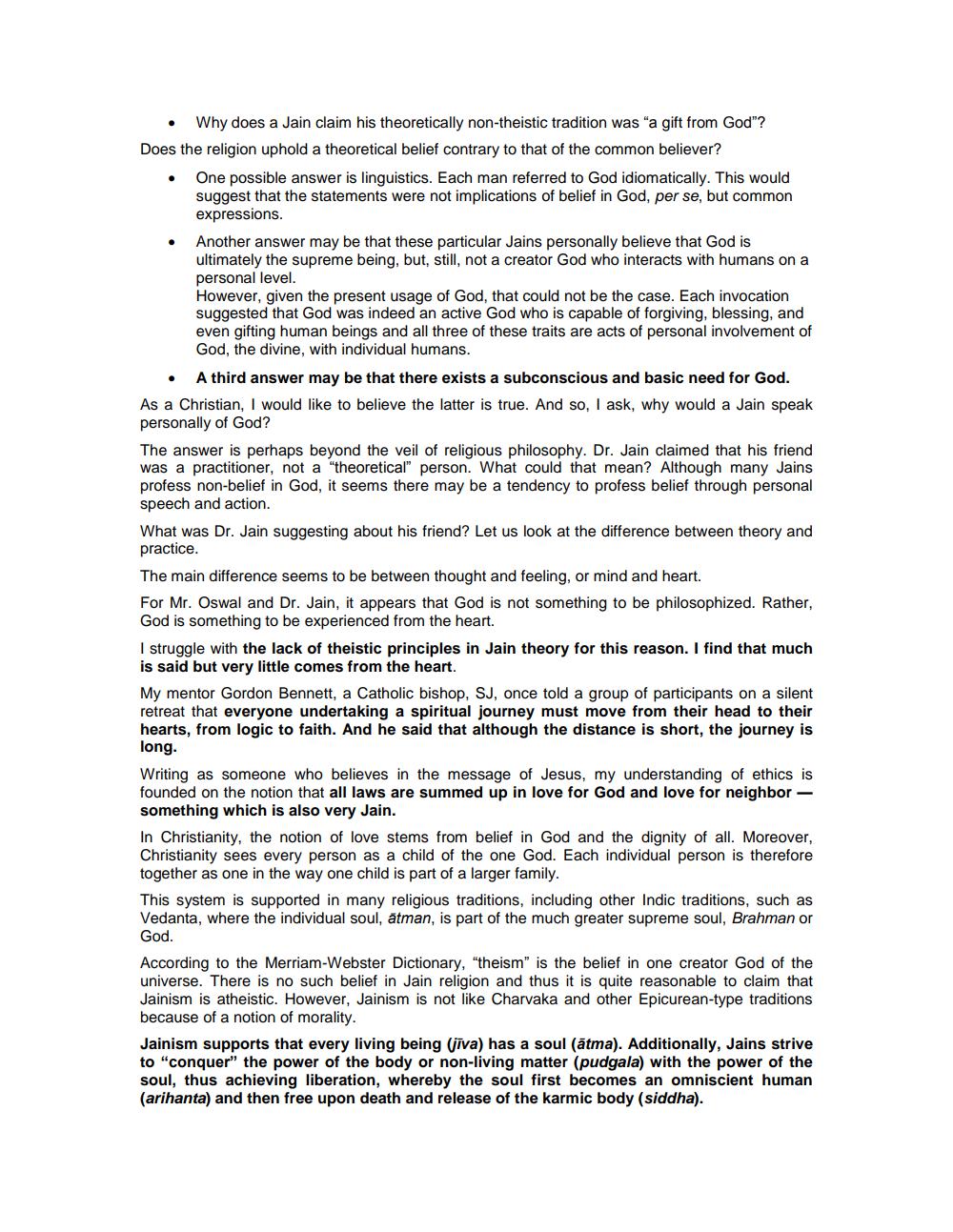Book Title: Is There Room For God In Jainism Author(s): Hunter Joslin Publisher: Hunter Joslin View full book textPage 2
________________ • Why does a Jain claim his theoretically non-theistic tradition was "a gift from God"? Does the religion uphold a theoretical belief contrary to that of the common believer? • One possible answer is linguistics. Each man referred to God idiomatically. This would suggest that the statements were not implications of belief in God, per se, but common expressions. Another answer may be that these particular Jains personally believe that God is ultimately the supreme being, but still, not a creator God who interacts with humans on a personal level. However, given the present usage of God, that could not be the case. Each invocation suggested that God was indeed an active God who is capable of forgiving, blessing, and even gifting human beings and all three of these traits are acts of personal involvement of God, the divine, with individual humans. • A third answer may be that there exists a subconscious and basic need for God. As a Christian, I would like to believe the latter is true. And so, I ask, why would a Jain speak personally of God? The answer is perhaps beyond the veil of religious philosophy. Dr. Jain claimed that his friend was a practitioner, not a "theoretical person. What could that mean? Although many Jains profess non-belief in God, it seems there may be a tendency to profess belief through personal speech and action. What was Dr. Jain suggesting about his friend? Let us look at the difference between theory and practice. The main difference seems to be between thought and feeling, or mind and heart. For Mr. Oswal and Dr. Jain, it appears that God is not something to be philosophized. Rather, God is something to be experienced from the heart. I struggle with the lack of theistic principles in Jain theory for this reason. I find that much is said but very little comes from the heart. My mentor Gordon Bennett, a Catholic bishop, SJ, once told a group of participants on a silent retreat that everyone undertaking a spiritual journey must move from their head to their hearts, from logic to faith. And he said that although the distance is short, the journey is long. Writing as someone who believes in the message of Jesus, my understanding of ethics is founded on the notion that all laws are summed up in love for God and love for neighbor - something which is also very Jain. In Christianity, the notion of love stems from belief in God and the dignity of all. Moreover, Christianity sees every person as a child of the one God. Each individual person is therefore together as one in the way one child is part of a larger family. This system is supported in many religious traditions, including other Indic traditions, such as Vedanta, where the individual soul, atman, is part of the much greater supreme soul, Brahman or God. According to the Merriam-Webster Dictionary, "theism" is the belief in one creator God of the universe. There is no such belief in Jain religion and thus it is quite reasonable to claim that Jainism is atheistic. However, Jainism is not like Charvaka and other Epicurean-type traditions because of a notion of morality. Jainism supports that every living being (jiva) has a soul (ātma). Additionally, Jains strive to "conquer" the power of the body or non-living matter (pudgala) with the power of the soul, thus achieving liberation, whereby the soul first becomes an omniscient human (arihanta) and then free upon death and release of the karmic body (siddha).Page Navigation
1 2 3
